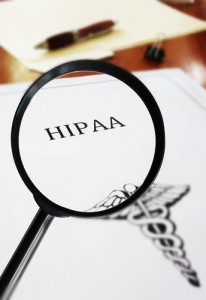In a world where privacy hacks and silent background data collection is becoming ever-present, HIPAA-compliance is increasingly important for anyone with access to your medical information.
What is HIPAA?
You may have signed off on confidentiality forms if you work in a medical field. At the doctor, you may have been given forms declaring who in your life has access to your medical results and diagnoses. These are components of the act, but as with any kind of legislature, there are various and complex parts.
HIPAA stands for Health Insurance Portability and Accountability Act. The California Department of Health Care Services breaks down the act into two main pieces:
- Transferability of health insurance – the ability to continue health insurance coverage if changing jobs
- Confidentiality and security – health records are stored and shared securely and safely regardless of its form (i.e. digital, written, verbally communicated)
Why do we need it?
Privacy and Protection
Medical information is often very sensitive. Diagnoses and results from tests can have detrimental effects if found in the wrong hands. HIPAA clearly defines who has access to what medical information, particularly in a digital world where information can be rapidly and widely disseminated.
Maintaining HIPAA-compliance in the digital age
The digital age offers more efficient and widespread information transfers; however, there are many risks accompanying this technology usage. Fortunately, there are options available to help protect sensitive medical information.
- Data encryption – whenever technology is used to transmit sensitive information, data encryption can help ensure security. Data encryption converts the information into a form that is indecipherable to anyone or anything that is not authorized to access the information.
- Screened professionals – as Unicom Teleservices describes, hiring screened professionals to handle sensitive information is a must because it can help prevent data leakages.
- Trained employees – hiring employees who are trained in HIPAA-compliance procedures will also help ensure the safe transfer and storage of medical information.
Phone call management and HIPAA
What this looks like
As an increasing amount of medical facilities decide to outsource their phone services, HIPAA-compliance becomes even more complicated. Employees dealing with these phone calls are not on-site, and this may pose some worries. If the above options are taken into account when deciding to utilize an outsourced medical call center, however, HIPAA-compliance is completely feasible and successful.
How to know if a call center is HIPAA-compliant
There are a variety of ways to determine if a medical call-center is HIPAA-compliant.
- Privacy and security statements— DialAmerica Healthcare Solutions is an example of a medical call-center that explicitly describes its HIPAA compliance. It explains how employees are not allowed to have outside technology, papers, etc. with them when answering phone calls. It then describes the data encryption services that are utilized when transferring information, and provides statistics about any regulatory citations regarding compliance that they have received.
- Ask the agents – as Elation Answering Services describes, find out if the agents are HIPAA certified and trained in compliance. Also, be sure to ask about their specific security procedures such as shredding any written information, or including privacy statements on faxes that are sent.
HIPAA-compliance is an essential (both legally and privacy-wise) of any segment of healthcare nowadays, including call center agents dealing with confidential information. Following the options listed above about how HIPAA-compliance works in the digital age, as well as determining if a call center is HIPAA-compliant will ensure that you incorporate the most well-suited call center agents into your medical setting. This ensures not only your protection as a medical facility and medical professional, but also ensures the safety and security of patients and their confidential health information.
Written by: Alexandra Kennedy
Alexandra is a freelance and contract writer based in the Greater Boston area. She is a biologist, animal lover, lifelong student, and traveler.
